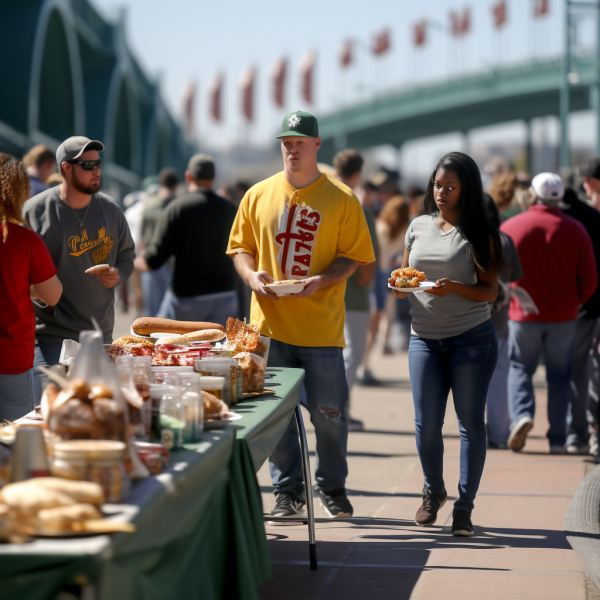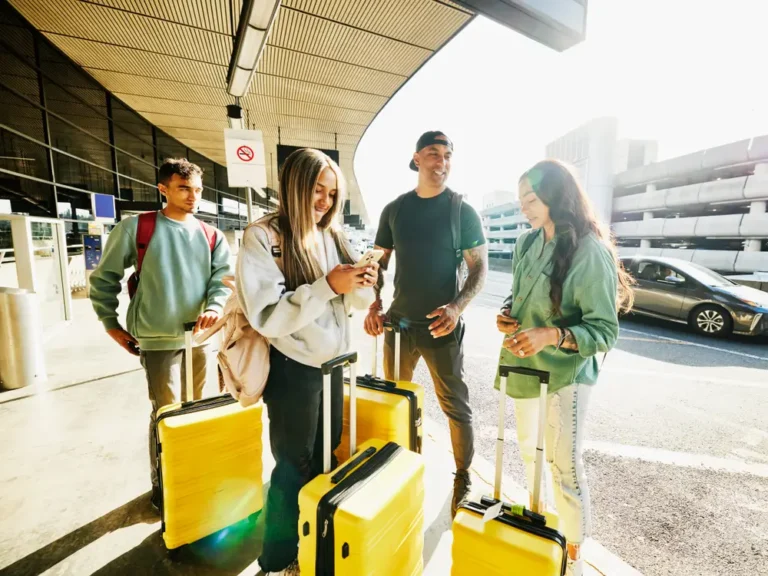Too many hot dogs at Oakland Coliseum? Lonely vendor at Oakland A’s game disagrees

OAKLAND, Calif. — On many nights, hot dog vendors crowd the Coliseum’s vast concrete parking lots, offering for a few dollars the bacon-wrapped indulgences that Bay Area sports fans often find impossible to resist.
They’re so popular, in fact, that stadium officials claim the situation has deteriorated to the point of danger. Vendors who crowd the lots after A’s games and Oakland Arena concerts next door, and even the tunnel bridge between the stadium and its BART station, they say, create a safety hazard for fans trying to enter and exit.
“If a fire broke out, there would be a crisis,” said Henry Gardner, executive director of the Coliseum complex’s joint powers authority. “We need to do something — perhaps point them to a specific area where they can sell.”
Gardner and other Coliseum officials, who first discussed the issue at a recent public meeting, are unsure how to address what they call a “excess vendor problem” — a rare headache at the ballpark and arena property that doesn’t involve a professional sports team.
On Wednesday, following an afternoon A’s game, the one lone seller outside the A’s stadium could barely find takers for his bacon-wrapped dogs.
“Look here,” said Bartholomew Luna, motioning to his grill, which was piled high with uncooked hot dogs. “Today, no one is buying. Nothing.”
Such are the volatile times at the Coliseum, where the A’s acquired half of the property rights in 2019 but have spent years criticizing the stadium and its infrastructure. Many vendors are looking for other places to go as the team trudges through what could be its penultimate season at the venue, with eyes on Las Vegas.
Attendance has been up and down, ranging from a season-high turnout of 37,533 fans over the weekend to “reverse boycott” the franchise’s owner, John J. Fisher, to the more-often dismal attendance numbers that reflect the on-field product.
The A’s have the lowest payroll in Major League Baseball, and both fans inside the stadium and hot-dog vendors outside, such as Luna, have taken notice.
“I don’t have any other work right now, so I have to come,” Luna, who lives in San Jose, said in Spanish, adding that he has yet to be told to leave the parking lot by security guards. But he might not bother showing up the next time there’s an afternoon game.
Luna and the majority of other independent hot-dog vendors do not have the $500 Coliseum permit. When live events resumed after the pandemic, the sellers began to appear in disproportionately large numbers.
“These are not major corporations out there,” Gardner explained. “These people are simply trying to keep a roof over their heads.”
The team hasn’t said anything about what it plans to do with its portion of the stadium, though meetings have occurred in recent months between A’s officials and the African-American Sports and Entertainment Group, which is negotiating with the city to redevelop the site separately. Meanwhile, the Oakland Roots soccer team is working on the logistics of constructing a temporary, modular stadium in the Coliseum’s C Lot, one of several sprawling parking areas on the site.
If the logistics work out and the team can reach an agreement with Gardner and the joint authority, Roots games, which are currently held at Cal State East Bay in Hayward, could begin at the Coliseum as early as the start of the next season, in March.
A lease agreement with the Roots could provide a useful revenue stream for the Coliseum property after the baseball stadium lost RingCentral as its naming sponsor earlier this year.
The 10,000-seat stadium could keep sports in Oakland while the city awaits word on WNBA expansion. Hot dogs are also sold at soccer games.
“We’re not going to escort these (vendors) off the premises or anything like that,” Gardner explained. “But there’s just so many of them — it’s a very dangerous situation.”





